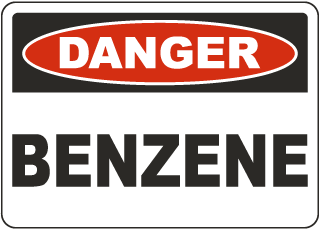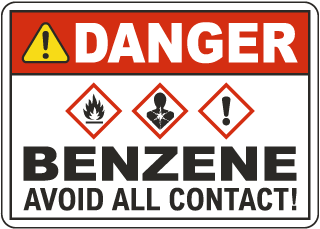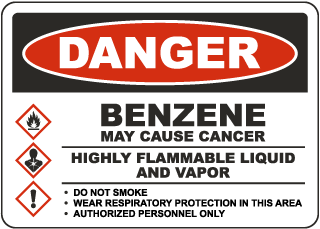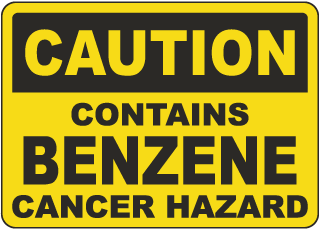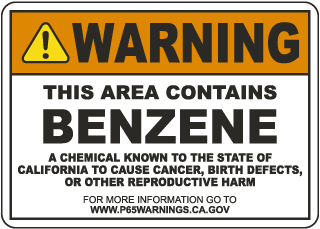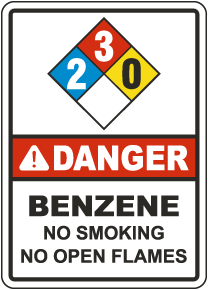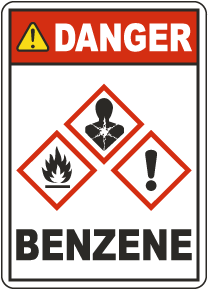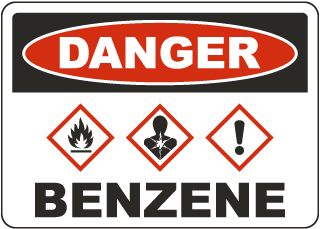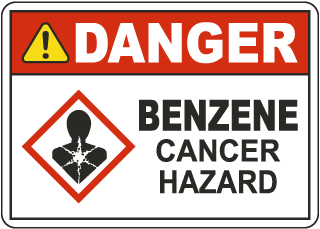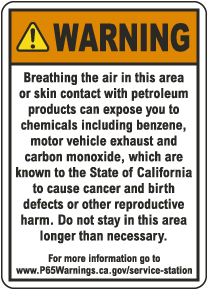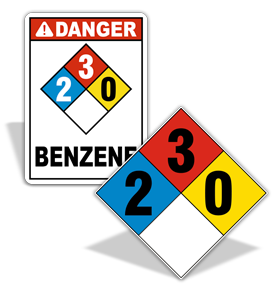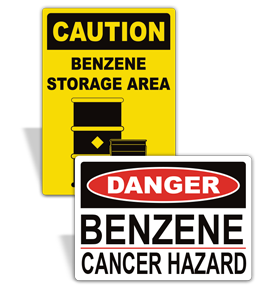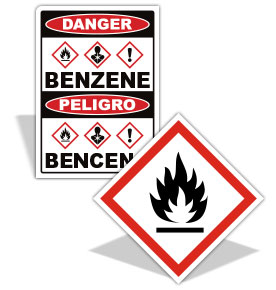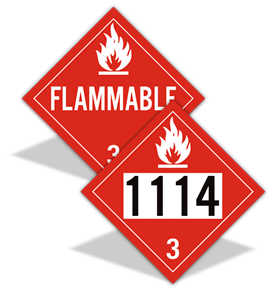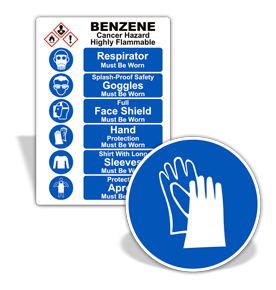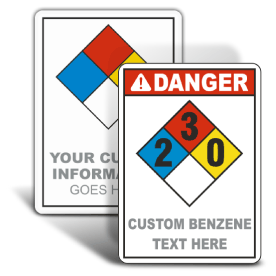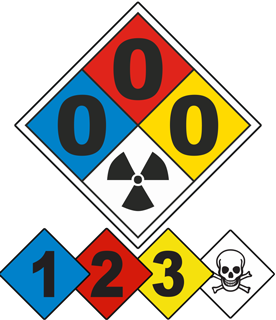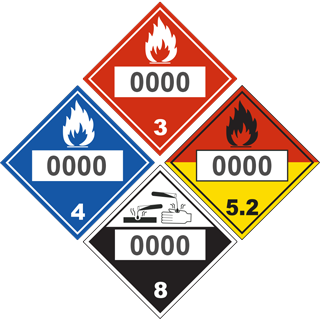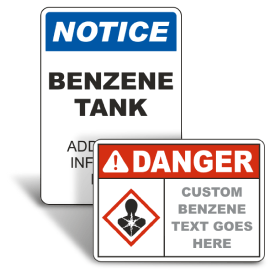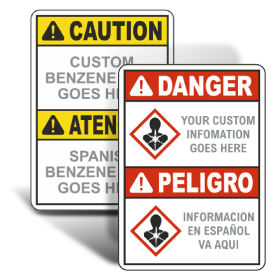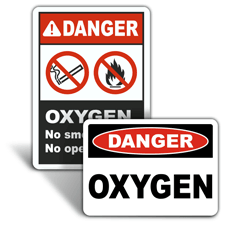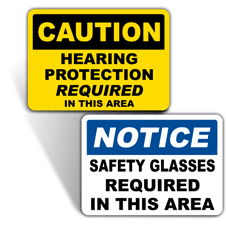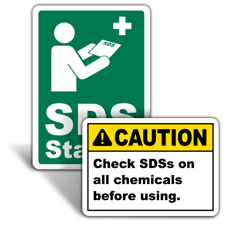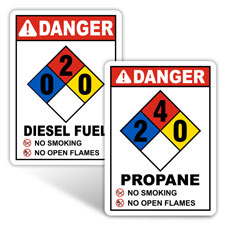Shop Our Wide Benzene Sign Selection
Other Categories You Might Be Interested In
What is Benzene?
Benzene
Benzene is a chemical that is a colorless or light yellow liquid at room temperature. It has a sweet odor and is highly flammable.
Benzene evaporates into the air very quickly. Its vapor is heavier than air and may sink into low-lying areas.
Benzene dissolves only slightly in water and will float on top of water.
Where benzene is found and how it is used
Benzene is formed from both natural processes and human activities, Natural sources of benzene include volcanoes and forest fires. Benzene is also a natural part of crude oil, gasoline, and cigarette smoke. Benzene is widely used in the United States. It ranks in the top 20 chemicals for production volume. Some industries use benzene to make other chemicals that are used to make plastics, resins, and nylon and synthetic fibers. Benzene is also used to make some types of lubricants, rubbers, dyes, detergents, drugs, and pesticides.
Long-term health effects of exposure to benzene
The major effect of benzene from long-term exposure is on the blood. (Long-term exposure means exposure of a year or more.) Benzene causes harmful effects on the bone marrow and can cause a decrease in red blood cells, leading to anemia. It can also cause excessive bleeding and can affect the immune system, increasing the chance for infection.
Some women who breathed high levels of benzene for many months had irregular menstrual periods and a decrease in the size of their ovaries. It is not known whether benzene exposure affects the developing fetus in pregnant women or fertility in men.
Animal studies have shown low birth weights, delayed bone formation, and bone marrow damage when pregnant animals breathed benzene.
The Department of Health and Human Services (DHHS) has determined that benzene causes cancer in humans. Long-term exposure to high levels of benzene in the air can cause leukemia, cancer of the blood-forming organs.
How benzene poisoning is treated
Benzene poisoning is treated with supportive medical care in a hospital setting. No specific antidote exists for benzene poisoning. The most important thing is for victims to seek medical treatment as soon as possible.
Fire Protection Guide to Hazardous Materials - Edition 14th
| Chemical Name / CAS No. | NFPA 30 / OSHA Class | Health | Flammability | Instability |
|---|---|---|---|---|
| Benzene 74-86-2 |
None | 2 | 3 | 0 |
The signs above represent our interpretation of material information in combination with NFPA 30 and NFPA’s Fire Protection Guide to Hazardous Materials. Without knowledge of your specific chemical, facility, or hazard, it’s impossible for us to guarantee these signs will match your situation. It is your responsibility to decide which signs are valid for your use and to comply with applicable laws and standards. This site is not intended as a substitute for expert analysis or professional consultation. We make no guarantee of the accuracy of the information on this site and assume no liability of injury or damage as a result of using our products.
